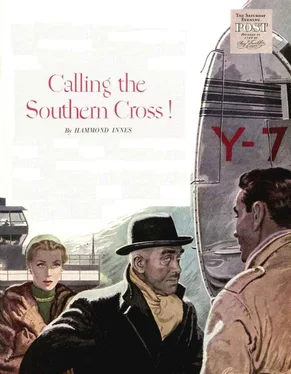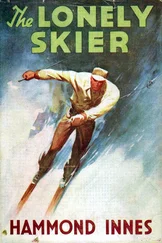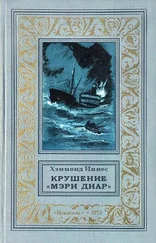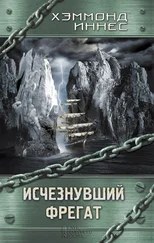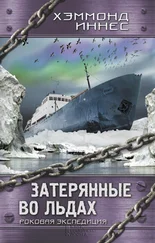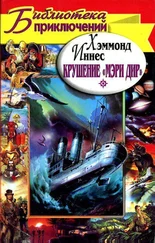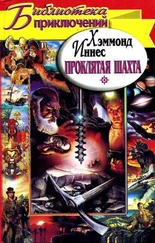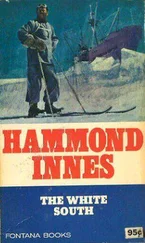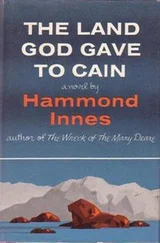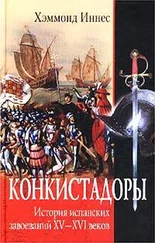“Plankton is sea food. The stuff the fin whales feed on. Mostly we catch fin whales. So if you know where their food is — well, that’s what I try to do — forecast by water temperature, currents, weather, and so on, where the plankton is.”
“And skytters? ” I asked.
“The skytters are the catcher skippers. It’s always the skipper who operates the harpoon gun. Sometimes we call them gunners.”
He lay back as though exhausted by this brief dissemination of information. “Queer about Nordahl,” he said suddenly. “He was a wonderful man.”
I could hear Judie’s voice saying exactly the same. “That’s what his daughter thinks,” I said.
“To hell with his daughter!” he cried angrily, thrusting himself up onto one elbow. “A little wench that falls for a tyke like Erik Bland shouldn’t be able to call Bernt Nordahl her father!”
“Don’t shout,” I said. “Bland might hear you.”
“Do Bland good to know what his son is really like!” he stormed angrily.
“What’s wrong with him?” I asked.
He sat up, swinging his feet off the bunk. “Nothing,” he said, “except the way he’s been brought up and the way his mind works.” His voice was bitter. “Bland’s a fool to think he can make his son fit to take over the business by sending him out for one season. All Bland thinks about is finance. It’s Bernt Nordahl who handled the whaling side. He was the best skytter in Norway. Then, after the war, he and Bland floated the South Antarctic Company. Nordahl took over management of the factory ship. In some outfits it’s the master of the factory ship who’s in charge of operations. In our case it’s the manager. And in the four seasons we’ve been operating, we’ve got more whale than any other outfit. Why? Because old Bernt Nordahl can smell whale. And because the men would do anything Nordahl says; they worshiped him. Or rather the old crowd did — the Tönsberg men.” He gulped down the rest of his drink. “And now he’s dead. Lost overboard. Nobody knows how or why.” He shook his head. “I don’t know what to think. He’d been on ships all his life.” The very words Judie had used. “He was as much at home in these frozen seas as we’d be in London. He couldn’t just vanish like that. I’ll ferret out the truth of what happened if it takes me the rest of the voyage!” he added violently.
I think it was then that I got the first premonition of trouble ahead. Howe had buried his head in his hands and was rocking gently to and fro. “I’d like to know what was in his mind the night he died,” he murmured.
“What are you thinking of?” I asked. “Suicide?”
“Suicide?” His head jerked up as though I’d hit him. “No!” he said angrily. “No, he’d never have done that.”
But if Bland were planning to hand control of the company to his son, surely that might be grounds for suicide?” I suggested.
Howe gave a quick laugh — a jackal laugh, half bark. “Bland stole his girl once.” he said. “Bernt Nordahl didn’t commit suicide then. No, he didn’t commit suicide.”
“Why is Bland in such a hurry to hand over the business to his son?”
“You want to know why? All right. I’ll tell you. He’s in a hurry because he’s going to die. And he knows it. He’s had two strokes already. And as far as I’m concerned, the sooner he’s dead the better. He’s a financial crook with about as much sense of—” His voice jerked to a stop. His mouth stayed open, the jaw slack. He was gazing at the cabin door.
I twisted round in my seat. The door was open, as it had been all along. And framed in it was Bland’s heavy bulk. He came in and I saw that his face was mottled with the pressure of his anger. “Get to your cabin. Howe,” he said in a terrible controlled voice. “And stay there. You’re drunk.”
Howe cringed away from him as though he expected to be struck. Then his long neck jerked out. “I’m glad you heard,” he breathed. “I wanted you to hear.” His voice steadied. It was unnaturally quiet as he said, “I wish you were dead. I wish you’d died before you ever left South Africa and came to Norway and met Anna Halvorsen.” His hands clenched and he stared vacantly into space. “I wish I’d never been born,” he whispered.
The man staggered to his feet, swaying slightly. He turned his head and focused slowly on Bland. “If you killed him,” he said, “God help you.”
Bland’s big hands caught hold of him. “What do you mean by that?”
“Then have it in plain words,” Howe said. “You tricked Bernt out of the woman he loved. And now you’ve been trying to trick him out of his interest in the company. For all I know, you’ve done worse than that. But don’t worry. Bland. I’ll find out the truth about his death. And if you’re the cause of it” — he thrust his head down so that his eyes were looking straight into Bland’s — “I’ll kill you.” he said.
He turned then, swaying slightly, and staggered along the passage to his cabin.
Bland turned to me. He gave an apologetic shrug of his shoulders. “I’m sorry you should have been witness to such a melodramatic scene,” he said. “The man’s not right in his head, I’m afraid. I’d never have employed him but for Nordahl. But until this moment I didn’t know he knew certain personal things. It gives his warped mind the sense of a grudge. I’d be glad if you kept the matter to yourself.”
“Of course,” I said.
The man looked terribly shaken. His face had a bluish tinge and his heavy cheeks quivered. “Good night,” he muttered.
“Good night,” I replied.
He closed the door behind him. I Hat there wondering what I’d got myself into.
Next day the sun had gone. The wind was cold and I began to think of the miles of ice-infested seas that lay ahead. Things were different this morning. There were no friendly grins as I inspected the ship. And later in the day an ugly fight broke out between two of the men. The coxs’n wouldn’t let me interfere, so I got McPhee up onto the bridge and asked him what the trouble was.
“Weel.” He fingered his jaw in the way he had. “It’s no exactly easy to explain. Ye see, this is a Nordahl boat. The men are all from Tönsberg. And noo that they know Nordahl is dead—”
“How did they find that out?”
“Ye canna have a row like there was between Bland and Howe last night wi’oot it getting aroond the ship. Ye’d be surprised, but the men are fond of Howe, the same way they were fond of Nordahl.”
“But they don’t have to fight over it.”
“Och, that was just their way of blowing off steam. The coxs’n was quite right to stop ye from interfeering. Ye see, there’s no love lost between the Tönsberg and the Sandefjord men, and it’s a Sandefjord man got hurt.”
“But they don’t have to fight just because there’s rivalry between the two towns.”
“Och, ye don’t understand. It’s this way: Nordahl was a Tönsberg man. When he and Colonel Bland started the company after the war, Nordahl had a free hand wi’ the signing on of the crews. Naturally, he signed on Tönsberg men. But Mrs. Bland — she’s Norwegian, ye ken — she comes from Sandefjord. Whatever the cause of it, Sandefjord men were included in the crew’s hist season. An’ this season the proportion’s aboot fifty-fifty. Weel, it dinna make for smooth running. There’s a natural resentment amongst the Tönsberg men.”
“So they took it out of this poor devil from Sandefjord?”
“Aye, that’s shoot it. They’re in an angry and soospicious mood — angry because they weren’t told a boot Nordahl’s death; Noospicious — weel, there’s one or two persons they wouldna mind shoving overboard.”
Читать дальше
